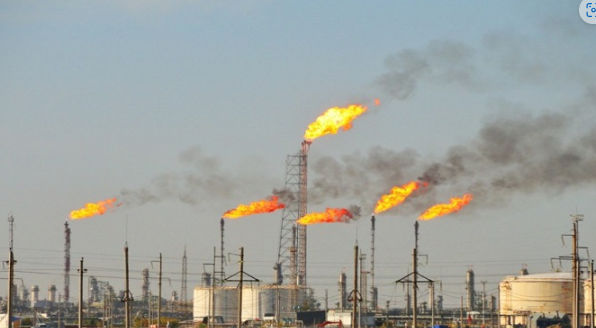Ghana Flares $170 Million Worth of Natural Gas Amid Processing Constraints
Ghana flared an estimated $170 million worth of natural gas in 2023, according to the 2024 report from the Public Interest and Accountability Committee (PIAC), underscoring persistent infrastructure bottlenecks in the country’s upstream petroleum sector.
A total of 28.5 billion standard cubic feet of gas was lost through flaring—representing 10.4% of the 279.3 billion cubic feet of raw gas produced from the country’s three main oil fields: Jubilee, Sankofa-Gye Nyame (SGN) and Tweneboa-Enyenra-Ntomme (TEN).
The PIAC report, which tracks the management and use of petroleum revenues, described the development as both an environmental hazard and an economic misstep, particularly in a year marked by power supply constraints.
Although Ghana maintains a regulatory zero-flaring policy, enforcement remains constrained by technical and infrastructural limitations. The Atuabo gas processing plant—currently the country’s only major gas processing facility—lacks the capacity to process all the associated gas produced, leading to systematic flaring.
“Technically, no company is allowed by the Environmental Protection Agency (EPA) to flare gas. However, because the Atuabo plant cannot handle the full volume of associated gas, the excess is routinely flared,” said Richard Kojo Ellimah, a PIAC member.
Gas flaring has steadily increased in recent years. In 2022, flared volumes rose by 19.3% over the previous year to 21.2 billion cubic feet, reflecting deepening structural challenges in gas monetization.
Beyond the financial implications, the report raises concerns about the environmental and health impacts of gas flaring, particularly its contribution to greenhouse gas emissions and localized air pollution.
In response, the government has announced the planned construction of a second gas processing facility, known as GPPII. The plant, once completed, is expected to significantly reduce flaring by converting excess gas into usable energy and petrochemical feedstock.
Mr Ellimah described the project as “a national priority,” urging swift implementation to ensure completion within the next three years. “It was heartening to hear the minister confirm the cabinet’s approval. This is a complex and capital-intensive project, but it is crucial for both environmental sustainability and long-term economic resilience,” he said.
The development highlights the broader tension between Ghana’s ambitious energy goals and its underdeveloped infrastructure—an issue policymakers must urgently address to unlock the full value of the country’s petroleum resources.








